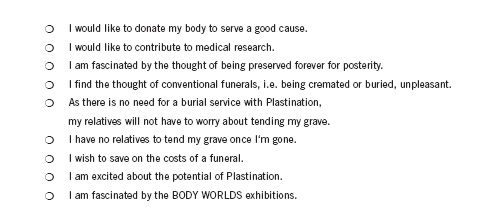I just found this really old draft from my notes on death and dying. My lag time idea is really starting to shape up!
I’ve been working my way through Heidegger’s being-toward-death ideas from Being and Time, with the help of a How To Read Heidegger guidebook. It all hinges on death as nothing, non-existence, non-being (uh, non-Being).
Death, as possibility, gives Dasein nothing to be ‘actualized’, nothing which Dasein, as actual, could itself be.
(Dasein being basically a self-aware entity, a person. I blaspheme. Here’s a more thorough explanation.)
One irrelevant aside before I get to my point: my How To Read Heidegger guide was published in the US and written by an American, but uses European typographic conventions (in the quote above, the comma is outside of the quotation marks, for example). Presumably this is because that’s how Heidegger wrote? I didn’t notice the punctuation in Being and Time at all, but reading an American book with this old country punctuation was actually making me feel weird and scholarly. Using an alternate prose style guide— yikes!
Anyway. Death as non-Being. I just finished reading Mary Roach’s Stiff: The Curious Lives of Human Cadavers, which, in a way, is all about the kinds of being you can pull off when you’re dead. She talks about cadavers having superpowers— not being able to feel pain, for example— and being uniquely qualified to fill certain medical and research roles. She spends serious energy insisting on the importance of being an organ donor, of being useful to other people after death.
I ran into that same phrase at Body Worlds in Vancouver. Being useful. The body donation forms have checkboxes where donors can fill in their motivations, including items about serving a good cause and contributing to medical research. My memory of the poster at the exhibit (in 2006) was an option about “continuing to be useful after I’m dead,” but maybe that was just the vibe I got from this set of options (from the 2007 form).
That makes sense in a very practical way (what else are you going to use that body for?), but at the time it made the hairs on the back of my neck stand up and it still does. Telling people they can be useful after death borders on exploitative, to me. There are sane reasons to do something useful with your body, but there could be some unfortunate denial that I wouldn’t want to encourage. It’s a twist on the usual spiritual afterlife— “yes, you still die, but not all the way.”
Not to mention the striking similarity that the “motivation” section of the body donation form bears to a market research questionnaire. In Vancouver, the Body Worlds exhibit ended with a big display about becoming a body donor, with posters and consent forms. It was positioned right in the exit, so everyone had to walk through it, the way museums often position the gift shop. Creepy! And not because of the dead bodies! The whole thing struck me as a self-perpetuating industry, a closed circle of marketing. The exhibit is designed to convince people to donate their bodies to make more exhibits to attract more donors to make more exhibits… A bit of a pyramid scheme.







